Understanding Tripoline 10mg and Its Intended Use
Tripoline, often prescribed as an antihistamine, is generally used to relieve allergy symptoms such as sneezing, runny nose, itching, and watery eyes. Tripoline 10mg is one of the standard dosages prescribed for moderate allergic reactions in adults, but its application in children—especially around the age of 13—requires more careful consideration.
In the U.S., medications given to minors are strictly regulated by pediatric dosing guidelines and FDA-approved indications. Tripoline, being a first-generation antihistamine, is not always the first choice for children because of its potential to cause drowsiness, changes in mood, or difficulty concentrating. So, when parents ask whether a 13-year-old should take oral Tripoline 10mg, the answer isn’t a simple yes or no—it depends heavily on medical history, the severity of symptoms, and a qualified physician’s evaluation.
The Medical Basis Behind Tripoline Prescriptions in Adolescents
Children between the ages of 12 and 17 are often considered adolescents under clinical guidelines. Many medications, including certain antihistamines, may be prescribed at adult dosages during this stage if weight and body metabolism are comparable to an adult’s. However, 10mg of Tripoline may still be too high for some 13-year-olds, especially those underweight or with concurrent health conditions.
In pediatric medicine, weight-based dosing is the gold standard. A child weighing less than 90 pounds may be advised to take a lower dose or to use a second-generation antihistamine with fewer sedative effects. Moreover, children with pre-existing conditions such as asthma, ADHD, or sleep disorders may react differently to Tripoline, making individualized consultation with a pediatrician essential.
Case Study: How One Family Learned the Importance of Consulting a Pediatrician
One New Jersey family shared their experience in a local health forum. Their 13-year-old son, Max, had been experiencing severe seasonal allergies. In an effort to help him sleep better and relieve symptoms, they administered Tripoline 10mg without consulting a doctor. Within hours, Max appeared groggy, disoriented, and complained of heart palpitations. They rushed him to urgent care, where physicians confirmed he had experienced a strong sedative reaction. The dosage, while technically within an adult range, was too much for his body weight and metabolism.
This experience not only frightened the family but taught them a valuable lesson: over-the-counter does not mean risk-free. The importance of medical guidance became clear, and Max was eventually prescribed a 5mg dose of a second-generation antihistamine, which provided relief without side effects.
Potential Side Effects of Tripoline in Young Teenagers
Tripoline, like other first-generation antihistamines, can cross the blood-brain barrier. In teenagers, whose brains are still developing, this effect can be more pronounced. Common side effects include:
- Drowsiness and daytime fatigue
- Dry mouth and throat
- Impaired coordination and concentration
- Mood changes or irritability
- In rare cases, rapid heartbeat or dizziness
These side effects are often dismissed as minor in adults but can significantly affect a child's performance at school or in social interactions. In fact, some teachers have reported that students on certain antihistamines may appear inattentive or lethargic in class, often misidentified as having behavioral issues. This connection underscores the necessity of choosing the right medication and dose.
Tripoline 10mg vs. Alternative Antihistamines for Children
Not all antihistamines are created equal. Tripoline is part of the older generation of allergy medications, which work well but often come with sedating effects. Newer alternatives like loratadine (Claritin) or cetirizine (Zyrtec) are typically favored for children, including those aged 13, due to their non-drowsy formulas.
Most pediatricians recommend starting with these second-generation antihistamines. They’re just as effective for mild to moderate symptoms and come in chewable or liquid forms that are easier for younger users to tolerate. In contrast, Tripoline is often reserved for more persistent symptoms, nighttime use, or cases where other antihistamines have failed.
Parents seeking medication guidance can visit Dentistry Toothtruth for resources tailored to safe pharmaceutical use in children and access to medical professionals experienced in adolescent care.
Legal and Regulatory Considerations in the U.S.
The Food and Drug Administration (FDA) has not officially approved all antihistamines for use in every pediatric age group. Tripoline 10mg, in particular, may fall into a gray area when it comes to 13-year-olds, depending on the specific brand or formulation.
Many over-the-counter products are labeled for adult use only or specify usage for children 12 and over with adjusted dosing. However, this doesn't mean 10mg is universally safe for every 12+ individual. The U.S. Centers for Disease Control and Prevention (CDC) advises that parents never interpret label suggestions as blanket approvals, especially for medications that impact neurological function.
In several states, school nurses have also been cautioned against administering high-dose antihistamines without parental and physician approval, following reports of students becoming unresponsive after lunchtime dosing. These incidents have led to tighter regulation and awareness campaigns within school districts.
When Tripoline Might Be Justified for a 13-Year-Old
Despite its risks, Tripoline 10mg may still be appropriate for some 13-year-olds. Children undergoing allergy testing, desensitization therapy, or experiencing persistent nighttime symptoms may benefit from the sedating effect. In controlled, physician-monitored settings, Tripoline can help manage:
- Chronic allergic rhinitis
- Severe skin allergies like hives or eczema
- Allergy-induced insomnia
- Reactions to insect bites
In such cases, doctors often start with a low dose and carefully monitor the child’s response. Parents are advised to maintain a medication journal, noting the time of administration, any observed side effects, and how long symptom relief lasted.
For these specialized scenarios, consultation with an allergist or pediatric specialist is key. Dentistry Toothtruth can connect families with trusted providers and offer educational materials to support safe treatment planning.
Parental Awareness and Responsible Medication Use
The decision to give any 13-year-old oral Tripoline 10mg should be based on informed medical advice, not convenience or guesswork. While many parents wish to relieve their child’s suffering quickly, the long-term risks of improper dosing outweigh the short-term benefits.
Parents are encouraged to:
- Always read medication labels and follow age-specific guidelines
- Consult a pediatrician before administering any new medication
- Monitor side effects closely and keep communication open with healthcare providers
- Explore non-pharmaceutical alternatives when appropriate, such as air purifiers or dietary changes
With the right approach, allergy relief for children doesn’t have to come at the expense of safety or well-being. For those unsure where to start, Dentistry Toothtruth offers a platform designed to educate and empower families seeking the safest solutions for their children’s health.

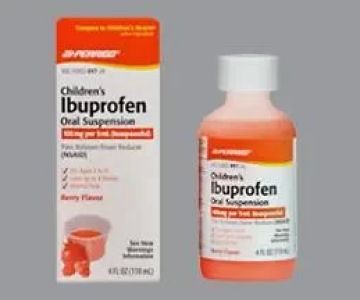
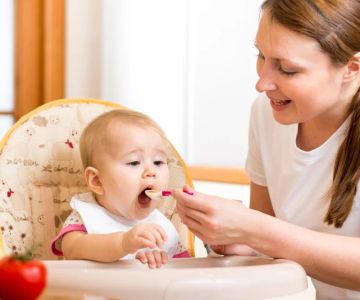
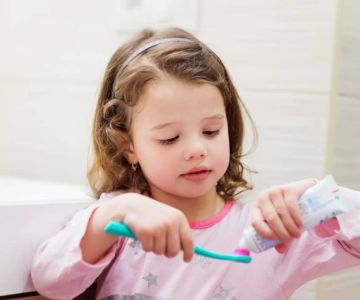

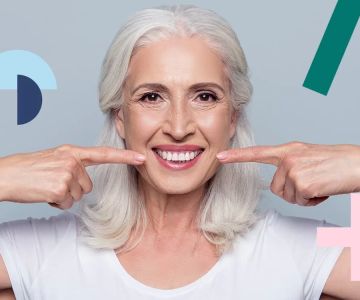
 McCall Family Dentistry5.0 (718 review)
McCall Family Dentistry5.0 (718 review)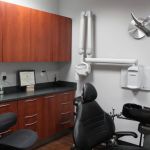 David J Wiseman, DDS4.0 (11 review)
David J Wiseman, DDS4.0 (11 review)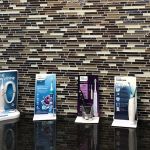 Garrity Square Dental4.0 (6 review)
Garrity Square Dental4.0 (6 review) Gentle Dental North Meridian4.0 (140 review)
Gentle Dental North Meridian4.0 (140 review) Groton Dental Group4.0 (288 review)
Groton Dental Group4.0 (288 review)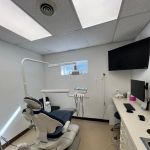 Clear Dentistry - Dr. Laura Carvalho, DMD4.0 (34 review)
Clear Dentistry - Dr. Laura Carvalho, DMD4.0 (34 review) The Importance of Oral Health Education During Pregnancy for a Healthy Pregnancy
The Importance of Oral Health Education During Pregnancy for a Healthy Pregnancy Best Tips for Brushing Your Teeth Properly for Healthy Gums: Essential Techniques for Oral Health
Best Tips for Brushing Your Teeth Properly for Healthy Gums: Essential Techniques for Oral Health Why Skipping Dental Checkups Can Lead to Bigger Oral Health Problems
Why Skipping Dental Checkups Can Lead to Bigger Oral Health Problems Advantages of Porcelain Dental Restorations
Advantages of Porcelain Dental Restorations How Can Diabetes Cause Tooth and Gum Problems? Preventing and Managing Oral Health Issues
How Can Diabetes Cause Tooth and Gum Problems? Preventing and Managing Oral Health Issues Healthy Habits for Promoting Good Oral Health and Hygiene: Tips for a Healthy Smile
Healthy Habits for Promoting Good Oral Health and Hygiene: Tips for a Healthy Smile